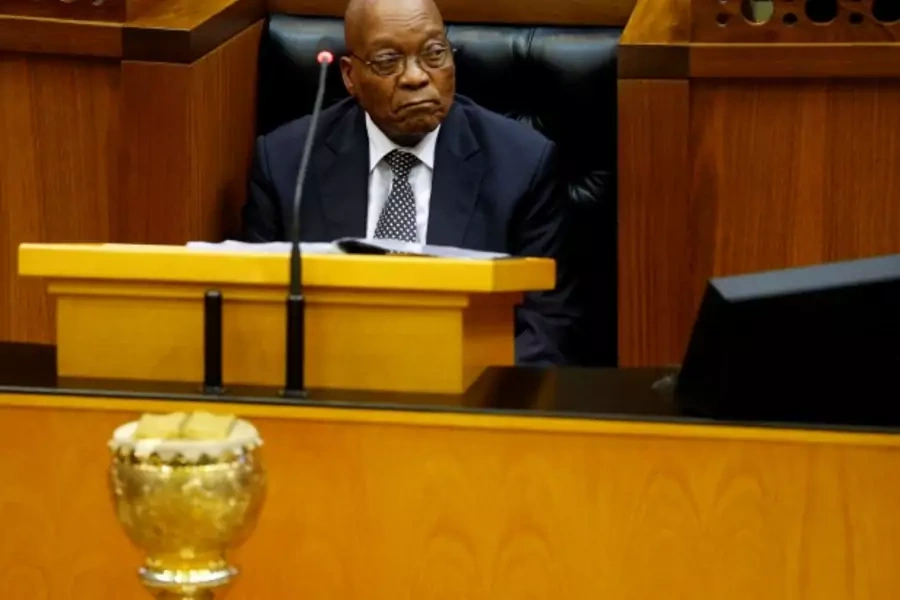More on:
Speaker of the South African National Assembly Baleka Mbete has postponed the date for a vote of no confidence in the government of Jacob Zuma from April 18 to early May. The delay was caused by the request to the Constitutional Court from the United Democratic Movement (UDM) that the vote be by secret ballot. The court has agreed to review the case, but has not yet made a decision. The speaker, who agreed to wait on the courts decision, is a political ally of President Jacob Zuma and is the national chairperson of his African National Congress (ANC).
The no confidence motion initiated by the largest opposition party, the Democratic Alliance (DA), has the support of the Economic Freedom Fighters (EFF) and nearly all of the opposition parties. However, the ANC numbers 249 of the 400 members of the National Assembly, and a successful no confidence vote must gain over 50 percent of the parliamentary vote. To have any chance of success, the motion must be supported by about fifty ANC ‘rebels.’ If the vote is not secret, the ‘rebels’ would be subject to party discipline, virtually guaranteeing that all ANC members would vote against the motion.
There would appear to be two issues for the Constitutional Court: whether the speaker could opt for a secret ballot (she says she could not) and whether the Constitutional Court could order the speaker to conduct the vote by secret ballot. The legal issues are explored by Pierre de Vos in the Daily Maverick.
The Constitutional Court is known for its independence, and it has regularly ruled against the government. Nevertheless, it is likely to be reluctant to intervene in the procedures of the National Assembly, a co-equal branch of government. However, even if there is a secret ballot, ANC party discipline is so strong that it is unlikely that there would be fifty ANC 'rebels.'
The delay in the vote of no-confidence means that as an issue it will not go away quickly and it allows public sentiment against Zuma to grow. For example, there was a protest demonstration in Pretoria led by the EFF on April 12 that numbered up to 120,000 participants. Even if the ANC defeats a May no-confidence motion, as is expected, this episode is likely to increase popular disenchantment with the party.
More on:
 Online Store
Online Store
